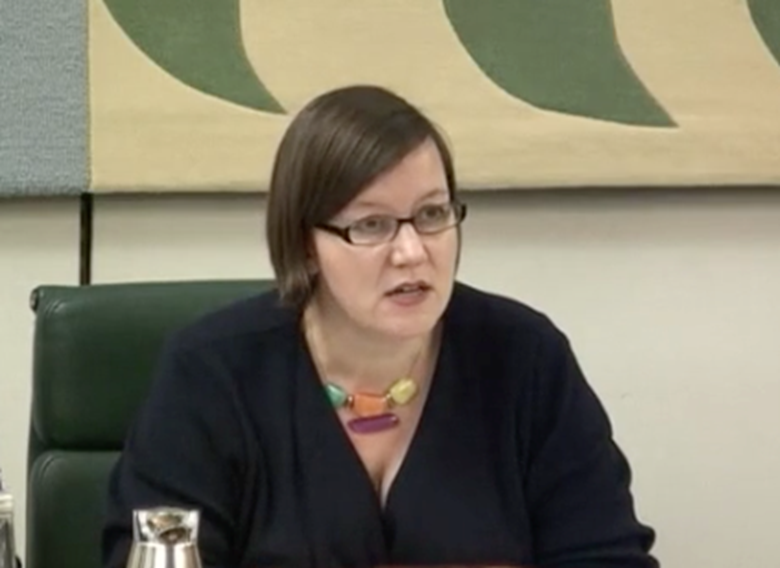DfE not learning lessons from Covid failures, warn MPs
Joe Lepper
Wednesday, May 26, 2021
The Department for Education is “surprisingly resistant” to learning lessons from failures to prepare for the challenges of the Covid-19 pandemic, according to an influential group of MPs.

The House of Commons public accounts committee (PAC) say in a report that the DfE was “unprepared” for the health crisis and is failing to assess its early response, more than a year on.
It is urging the DfE to “carry out a systemic lessons-learned exercise, to evaluate its response to the pandemic and identify departmental-specific lessons”.
-
Features: How Covid-19 remade children's services
-
Features: Key challenges met by the sector in 2020
MPs are particularly concerned the DfE has not yet carried out a full review of its response during the early stages of the pandemic to ensure its planning for emergencies and any future Covid-19 disruption improves.
“The Department seems surprisingly resistant to the idea of conducting a proper lessons-learned exercise on its early response to the pandemic,” says their report.
The committee says the DfE’s view is that it had “learnt lessons organically” amid the pandemic and improved during subsequent lockdowns. Their report also notes that the DfE is looking at a cross departmental review of the government’s response, rather than education in isolation.
But MPs warn that: “In our view, by taking this approach, the department risks learning lessons too late to improve how it supports the education system in the event of further disruption.”
The lack of access to school, for all but a minority of vulnerable children is among DfE blunders, according to the PAC report.
It raises concerns that the proportion of vulnerable children who attended school or college remained below 11 per cent from March to May 2020 “and only reached a weekly average of 26 per cent by the end of the summer term”.
This increases the risk of harm to children due to a dip in children’s social care referrals as schools were unable to spot “ongoing hidden harm to children”.
MPs want the DfE to work closely with the Association of Directors of Children’s Services to ensure children are being effectively protected.
Disruption to the education of pupils with special educational needs and disabilities (SEND) is another concern highlighted by MPs.
They note that the DfE relaxed requirements on schools and councils to carry out needs assessments. But this led to delays in receiving support, say MPs. They also note that many SEND pupils found remote learning difficult, without specialist support and equipment.
Online remote learning for a wide range of disadvantaged pupils is another concern highlighted. MPs note the DfE scaled back its plans to provide laptops, tablets and routers to help vulnerable children to learn at home.
MPs want ministers to set out a plan for ensuring all vulnerable and disadvantaged children have access to IT support for home learning.
“The plan should make clear the roles of the department, local authorities and schools, and set out what funding will be available to maintain and replace equipment,” says their report.
“The pandemic has further exposed a very ugly truth about the children living in poverty and disadvantage who have been hit particularly hard during the pandemic,” said PAC chair Meg Hillier MP.
“Online learning was inaccessible to many children even in later lockdowns and there is no commitment to ongoing additional funding for IT. Schools will be expected to fund laptops out of their existing, and already squeezed, budgets.
“The committee was concerned that DfE appears uninterested in learning lessons from earlier in the pandemic, preferring to wait until the public enquiry which won’t report for years.
“It shows little energy and determination to ensure that its ‘catch-up’ offer is sufficient to undo the damage of the past 14 months.”
Local Government Association children and young people board chair Anntoinette Bramble said councils share PAC’s concerns that the needs of disadvantaged pupils have been “disproportionately impacted by the pandemic”.
“We hope to see the detail behind the government’s education recovery plan as soon as possible. It is vital that all children who need support get it when they need it,” she added.
Meanwhile, Richard Kramer, the chief executive of disabilities charity Sense, urged the government to “learn from the events of the past year and ensure all disabled children receive the care, support and education they are entitled”.
A DfE spokeswoman said: “Throughout the pandemic we have acted swiftly at every turn to help minimise the impact on pupils’ education and provide extensive support for schools, colleges and early years settings.
“The department has updated and strengthened its remote education expectations as best practice has developed and schools’ capabilities have increased.
“We have invested over £2 billion into schemes to provide pupils with devices for remote education and ambitious catch-up plans – with funding targeted at disadvantaged children and young people who need support the most.”




